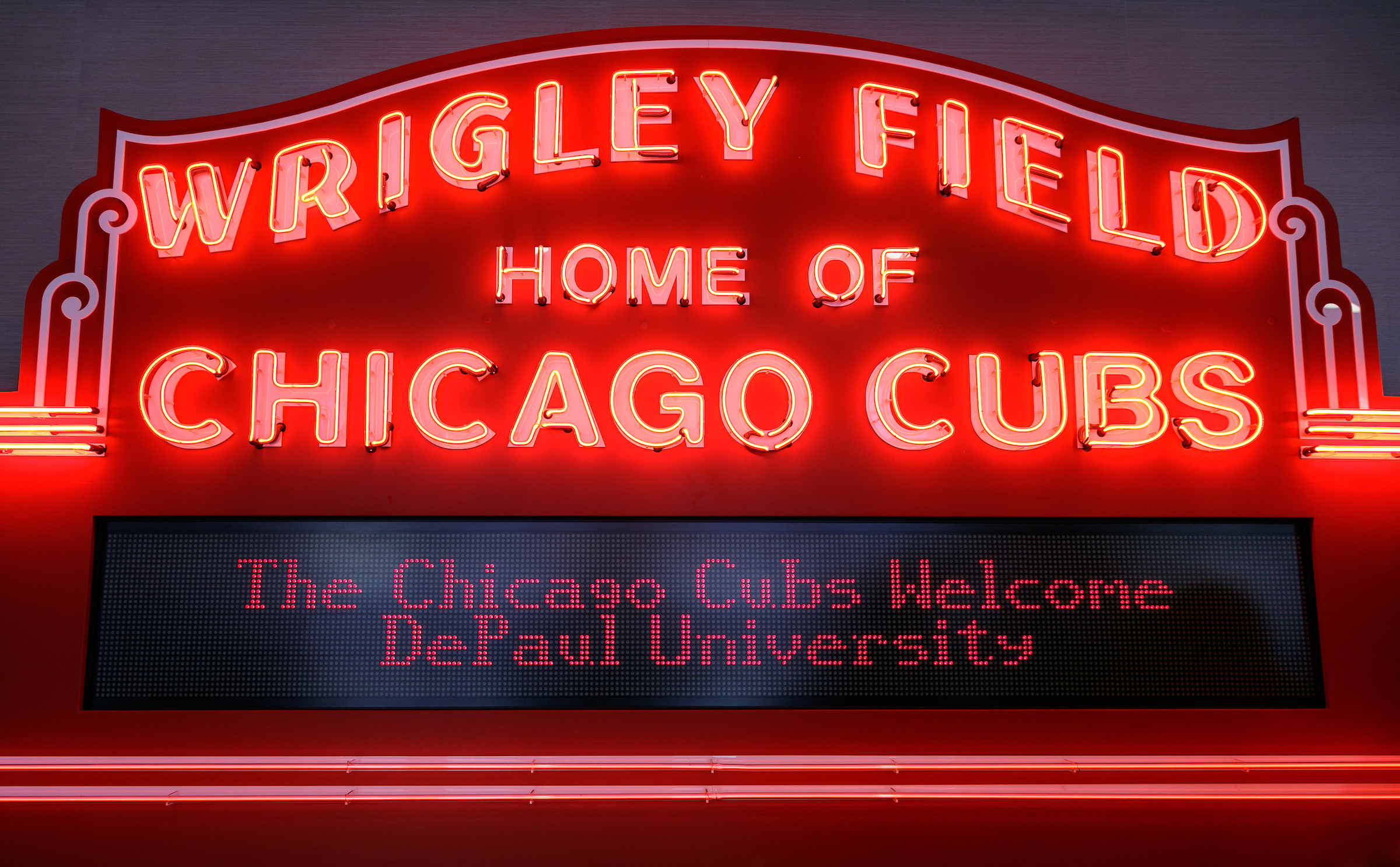 Located in the nation's third-largest media market, the new DePaul sports communication program will have access to an array of professional sports franchises, global sports organizations and world-class media. (DePaul University/Jeff Carrion)
Located in the nation's third-largest media market, the new DePaul sports communication program will have access to an array of professional sports franchises, global sports organizations and world-class media. (DePaul University/Jeff Carrion)
Sports in the U.S. is a major force for economics, entertainment, education and culture. In fact, PricewaterhouseCoopers predicts the industry will reach $75 billion in revenue by 2020. For college students that means a variety of career opportunities that require a sophisticated application of communication, business and digital skills.
DePaul is one of the pioneers in higher education to offer a sports communication bachelor's degree - a fusion that balances communication and business classes. Classes are slated to begin this fall.
"There is a clear need in the industry for higher education to serve the major professional sports franchises and related network of sports organizations and businesses," says Salma Ghanem, dean of the College of Communication. "With Chicago's championship teams, global sports organizations and world-class media just outside DePaul's front door, a sports communication degree is a good fit for the industry, the market and our students."
Believed to be the only undergraduate sports communication program in one of the nation's top three media markets and only the second one at a university in Illinois, the degree will be offered by the College of Communication, with core classes also from the Driehaus College of Business.
"Communication and business in the sports industry is becoming so intertwined that it makes sense to combine the areas into one academic field," says Greg Miller, a 1988 DePaul graduate and vice president of content and innovation for the Chicago Bears. "The current business model for teams and leagues requires them to produce their own content on the same level as media companies, while keeping that content on brand and using that content to achieve marketing and communication goals. This is one of the reasons why a degree of this kind will be so important to students looking to enter the sports field."
Students will take 16 credit hours of business courses, 20 credit hours of communication core classes and 32 hours of sports communication classes. Concentrations within the major will include sports journalism, sports promotion and publicity, and sports and society.
"Professional opportunities in sports are greater than ever," says Carolyn Bronstein, a professor of media studies and an associate dean in the College of Communication. "When students think of sports careers, they may be thinking of the most visible careers, such as a professional athlete or sports broadcaster for ESPN. However, there are multitudes of sports-related jobs that offer tremendous hiring potential, such as working in public relations for a sports team as a media relations professional, website manager or social media expert.
While there has been a tightening of job opportunities along traditional journalism paths in sports, there is growth in journalism-like communication careers for professionals to work with teams, organizations and leagues, notes Jason Martin, an associate professor and chair of the journalism program.
"The appeal of a sports communication undergraduate degree is that it combines business and strategic communication skills and courses with the journalism skills - writing, reporting, fact checking, digital media, audiovisual editing - to prepare students for new and developing career opportunities in the sports industry," Martin says.
Another field that will be accessible to sports communication graduates is sports public relations.
"To land a sports PR job post-graduation, relationships are even more important than in traditional PR," says Jim Motzer, a professional lecturer in the college's PR program who has decades of experience in brand marketing, issues management and corporate social responsibility. "This degree will introduce students to a vast array of sports communication pros, many of whom are DePaul alums, and help them gain valuable internship experience while in school. That will set students in our new program apart from others in the hyper-competitive field of sports communication."